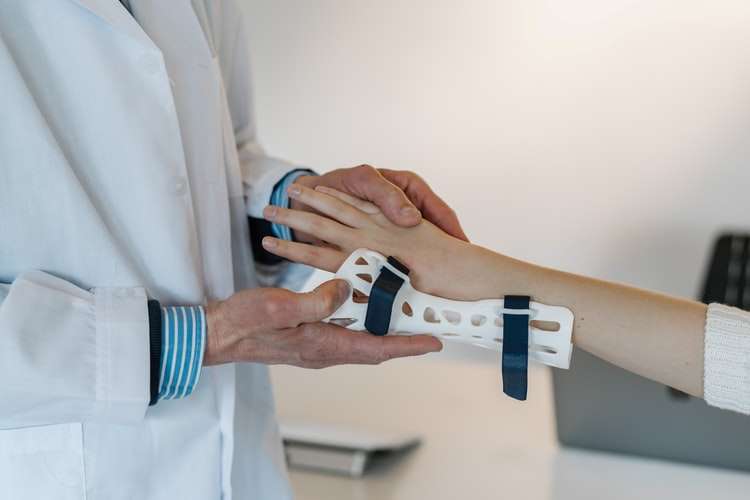
By Shailesh Haribhakti and Ram Kapadia
A couple of years ago, the authors wrote an article about the future world. The part of the story that got a lot of feedback was where we talked about healthcare. See the excerpt below.
“The year is 2040. This is Anna’s story. Anna is a CEO at a top-tier engineering company. She has not had a single sick day in the last 10 years. Embedded sensors in Anna’s body and every artifact of hers’ like a toothbrush, wearables, bedding and clothing combine with nano-bots in her bloodstream to continuously diagnose the status of her health and the root causes of any affliction. Instead of expensive medical diagnostic machines, the ubiquitous sensors in the “trillion-sensor-world” of 2040 provide precision diagnosis and tailor-made treatment, enhancing human life immeasurably. IoT, machine learning, high-level analytics, and artificial intelligence have combined to empower Anna to understand her body much better such that she can take effective preventive action in time. And thus, never fall sick.”
READ I Future perfect: Life after the fourth industrial revolution
Will the above ever be true? If so, would a pandemic like COVID-19 ever happen again? Let’s assess this as we look at some interesting trends that could shape the future of healthcare.
- Telehealth and in-home tech will become ubiquitous and all of us will use these technologies as the first step to diagnosis and treatment. Local shortages of high-quality physicians and nurses will no longer be an issue as augmented intelligence (AI), IoT, and AV/VR will converge to improve the quality and delivery of at-home healthcare. Virtual care or telemedicine will ultimately replace primary care.
- Digitised health records will become the norm. All health records of every individual will be uploaded to the cloud and be accessible digitally across the world. Global standards will emerge to enable efficient storage, retrieval, and readability of these records.
- Death-care will be redefined. Companies like Recompose will lead the charge here. Recompose converts bodies into usable soil, that the loved ones can keep with them or use for farming thereby preserving the memories even more closely.
- On-demand 3D printing will make medical devices and human body parts cheaper and more readily accessible to millions of people. 3D printing will also enable us to regrow any body parts such as arms, legs, hearts, skin, etc. Thus, one does not have to wait for a donor to get the needed body part.
- Bionic devices will become cheaper and widely available. Bionic eyes will effectively banish blindness and no one will ever be visually impaired. Another example: 3D-printed bionic hands – a few companies are working on creating these affordable, solar-powered prosthetics.
- Mental illness will go through a big evolution globally. It will be more commonly understood and accepted and will no longer carry the stigma it carries today. Mental health diagnosis and drugs will be as precise and effective as antibiotics.
- Healthcare will be more data-driven than ever before. Not only will everyone’s medical history be fully digitized but also wearables, smart home technologies, and genetic tests will generate an enormous amount of data. Sophisticated, predictive algorithms on this data will help individuals understand the state of their health and where it is heading. It will also help companies aggregate disparate data across individuals to use it in a predictive manner.
- Precision medicine approach for disease treatment and prevention (which takes into account individual variability in genes, environment, and lifestyle) will see enormous growth over the next 2 decades. A lot of this will be driven by the data-driven transformation we covered in #7.
- Outpatient procedures will grow significantly. As technology evolves, several illnesses/conditions will not need hospital stays and will become outpatient procedures. Innovation and improvements in clinical procedures mean that medical or diagnostic procedures that once required an inpatient stay will be performed safely in an outpatient setting.
- IoT-driven nano-robots, nanobots, will be implanted/inserted in all humans. Whenever an illness begins, before the patient even feels a symptom, nanobots will send alerts to the doctor, who will then prescribe the right treatment. Nanobots will be truly transformational like we saw in Anna’s story.
- Lifespans will increase as humans will be able to control their health better. Gene sequencing, gene therapy, gene editing, and CRISPR will enable humans to detect and fix diseases like cancer or autoimmune conditions, much before they become visible or symptomatic. Large-scale genomic sequencing and robust AI/ML algorithms will allow us to understand the root cause of cancer, heart disease, and neurodegenerative disease and what to do about it.
- Healthcare will truly be democratized. Some examples: AI-enabled autonomous health scans will provide quality diagnostics to everyone – rich or poor. Medical robotics will serve humans around the world, faster and cheaper. Robotic surgeons will carry out a perfect operation at a low cost.
- STEM cell therapy will drive mind-boggling solutions. Most promising being tissue regeneration and renewal – and thus a “cure” for everything from spinal cord injuries to diabetes, Parkinson’s, Alzheimer’s, heart disease, stroke, burns, cancer, and osteoarthritis.
- Building immunity through natural, as well as artificial means, will become huge. Emphasis on meditation and physical fitness, yoga, naturopathy, etc. will see an increase like never before.
- Personal hygiene has received a lot of focus during the Covid-19 pandemic. People have realised its importance and the role it plays in spreading infections. This awareness will continue to exponentially increase as people settle into a cleaner, more hygienic way of life.
These are just a few of the advances we have come across. Many more are under research and the breakthroughs will continue to take our breath away. The challenge for us is to come together and treat the whole human race with dignity and respect. Good health and well-being should become a key objective for all of us.
(Shailesh Haribhakti is corporate leader based in Mumbai. He is a chartered and cost accountant, and writes regularly on the Indian economy and public policy. Ram Kapadia is a thought leader and entrepreneur based in Mumbai.)
Shailesh Haribhakti is a Chartered and Cost Accountant, an internal auditor and a certified financial planner. He is a board chairman, audit committee chair and independent director at some of the country's most preeminent organisations. He is a thought leader on the Indian economy and public policy.

